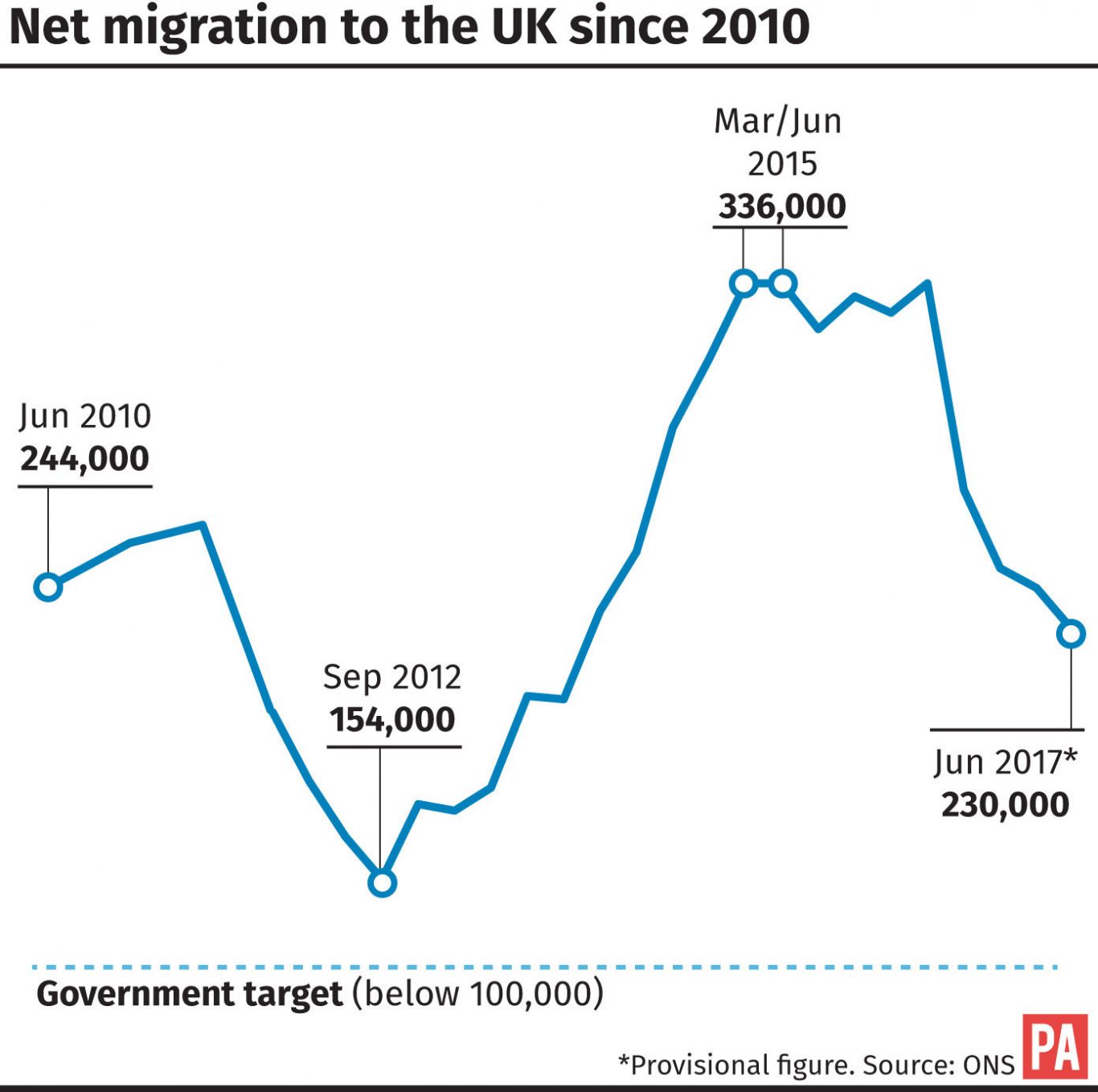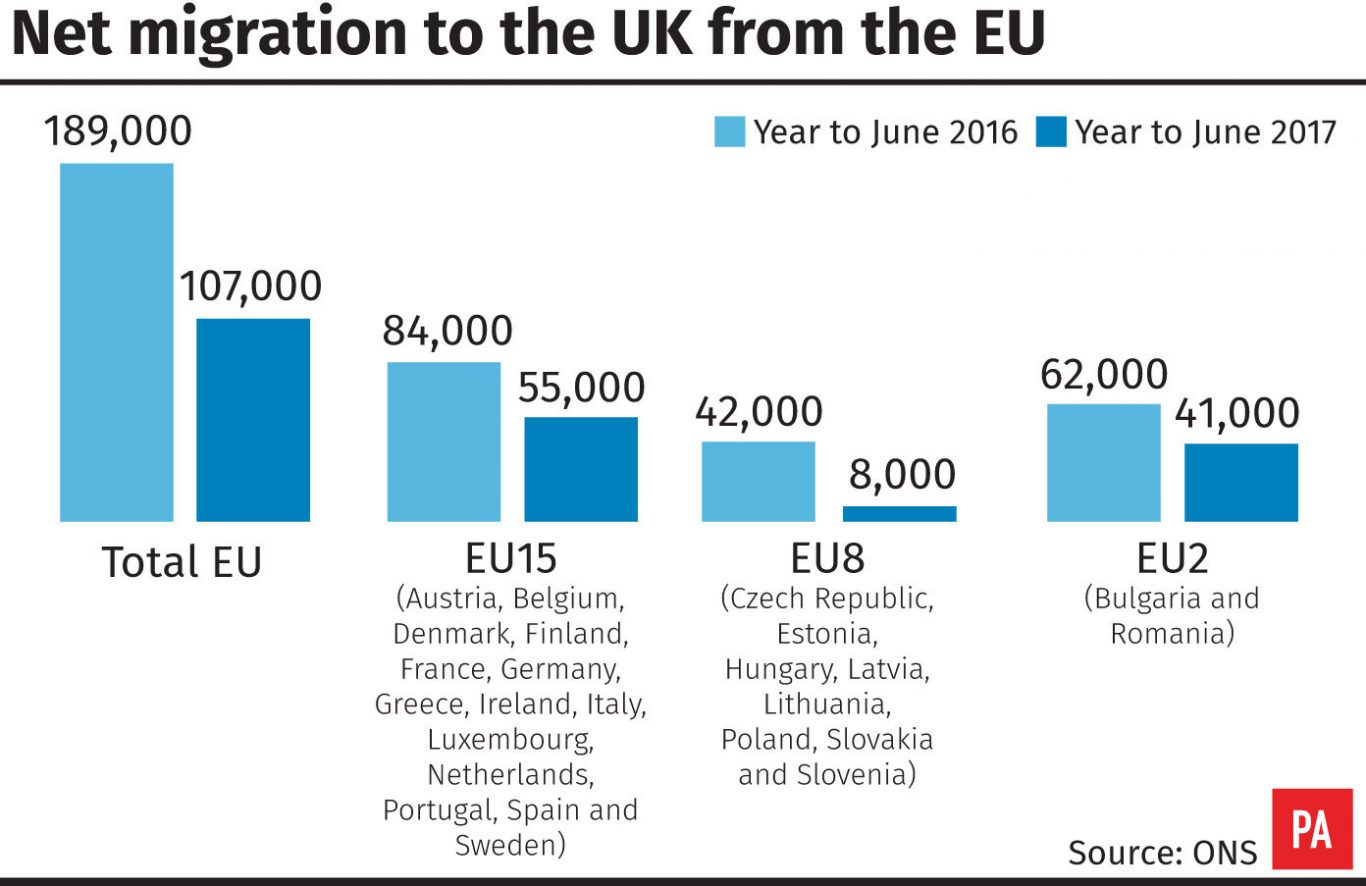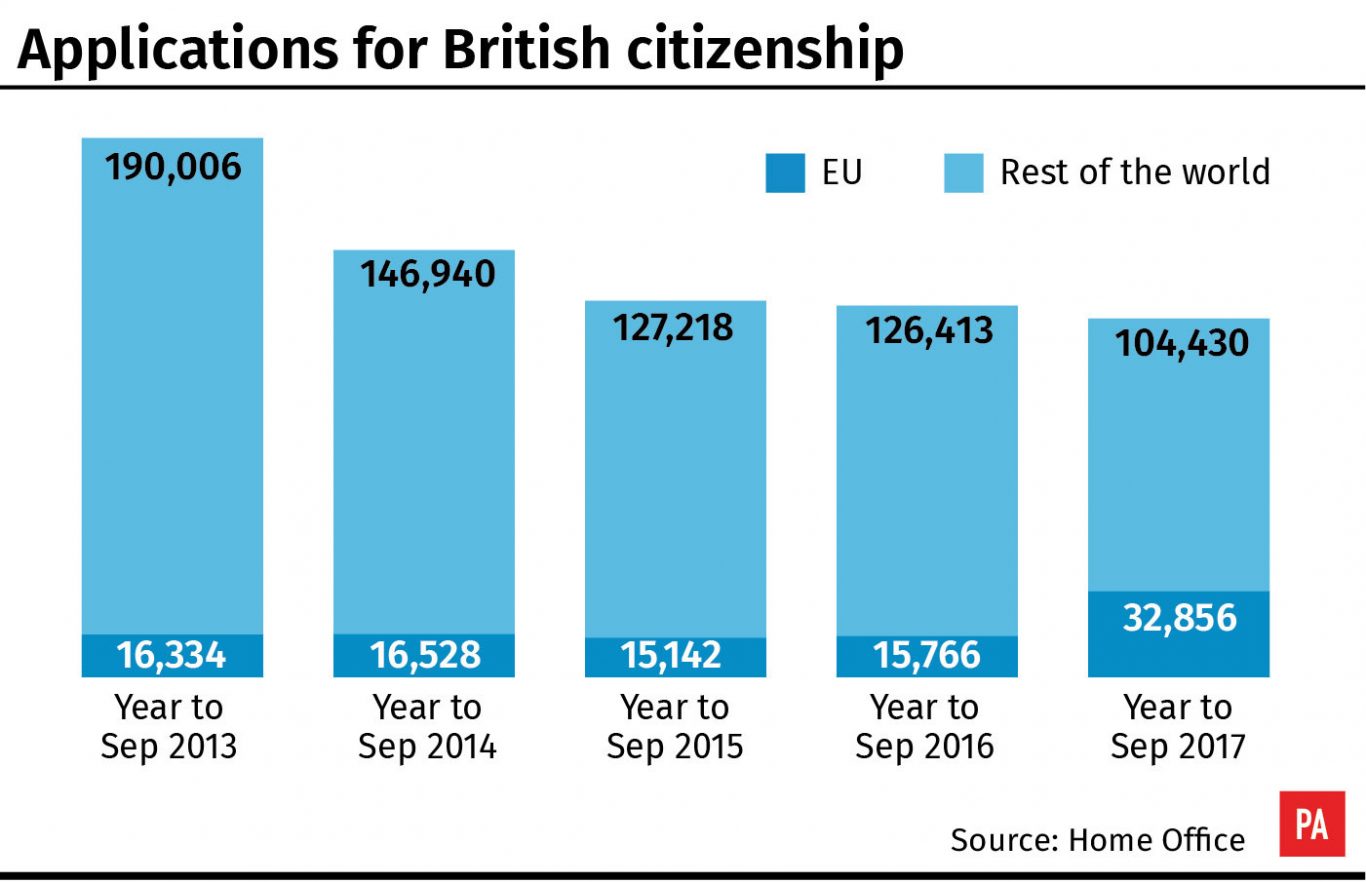Net migration to UK shows steepest drop on record in year after vote to leave EU
It is the largest decrease in net long-term migration in any 12-month period since records began in 1964.

Net migration to the UK registered the steepest fall on record in the year after the Brexit vote, official figures reveal.
The measure – the difference between the numbers arriving and leaving the country for at least a year – was estimated at 230,000 in the 12 months to the end of June 2017.

This was a drop of 106,000, or around a third, compared with 336,000 in July 2015 to June 2016.
It is the largest decrease in net long-term migration in any 12-month period since records began in 1964, although the level remains well above the Government’s target of less than 100,000.
More than three-quarters of the year-on-year reduction was accounted for by EU citizens.
EU net migration fell by 82,000 to 107,000, which was described as a “statistically significant” drop, and was driven by a fall in the numbers arriving and a rise in emigration.
Statisticians said the figures indicate net migration has returned to levels seen in 2014.
Nicola White, head of migration statistics at the Office for National Statistics, said: “Overall more people are still coming to live in the UK than are leaving and therefore net migration is adding to the UK population.”

She noted that the decline in the latest period follows “historically high” levels of immigration, saying it is “too early to say whether this represents a long-term trend”.
Ms White added: “The number of people immigrating for a definite job has remained stable but there has been a 43% decrease in the number of people immigrating to look for work over the last year, especially for EU citizens.
“These changes suggest that Brexit is likely to be a factor in people’s decision to move to or from the UK – but decisions to migrate are complex and other factors are also going to be influencing the figures.”
Madeleine Sumption, director of the Migration Observatory at the University of Oxford, said: “The data don’t tell us this for certain, but the referendum has certainly created a set of circumstances – such as a fall in the value of the pound, and increased uncertainty about future status – that could make the UK less attractive.”
Professor Jonathan Portes, senior fellow at The UK in a Changing Europe, said the statistics show the country has become a “less attractive place for European migrants”.
He said: “Whatever your views on the impact of immigration, it cannot be good news that the UK is a less attractive place to live and work, and that we will be poorer as a result.”
Lord Green of Deddington, chairman of Migration Watch UK, said: “This is a significant and very welcome reduction in net migration – especially by EU citizens who do not have a job to come to.”
Immigration Minister Brandon Lewis said: “With more Europeans continuing to arrive than leave, these figures show that claims of a ‘Brexodus’ are misguided.

“At the same time, there is no consent for uncontrolled immigration. We welcome the ongoing decrease in net migration levels and remain committed to bringing them down to sustainable levels, the tens of thousands.”
The ONS report revealed a large fall, of 54,000 to 230,000, in immigration of EU citizens.
At the same time, the number of EU migrants departing the country went up by more than a quarter to 123,000 – the highest level of emigration since 2008.
Meanwhile, separate figures show rising numbers of EU nationals are applying to become British citizens.





